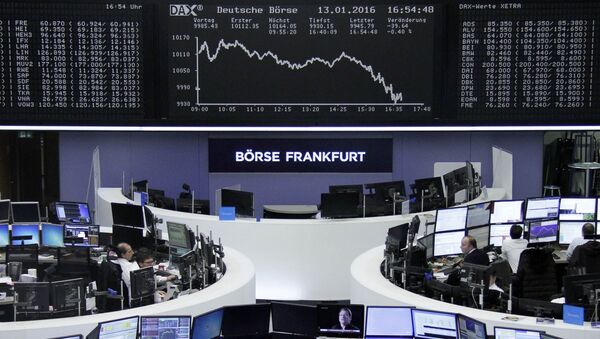On Friday, the Eurozone's index of executive and consumer sentiment dropped to 103.8 from 105.1 in January, according to a report by European Commission. This level is its lowest since June, when Grexit fears were ravaging the economic outlook on the common currency bloc. Previous forecasts for February were at 104.3.
"It's a bad set of figures that reinforce the case for more stimulus," Michael Schubert of Frankfurt-based Commerzbank AG said. "It's not just concerns about inflation expectations, the risk is now that weakness begins to impact growth."
Consumer confidence, which was already in negative territory in January at minus 6.3, dropped further to minus 8.8 this month, and services sector business sentiment declined to 10.6 in February from 11.5 the previous month. This is an across-the-board slump in business and consumer confidence, as the German slowdown weighed on industrial production confidence, which has fallen as well, due to a lack of efficient demand overseas. Retail sector sentiment also slid due to disinflation prospects.
However, on the brighter side, in France, despite the decline in overall business confidence, manufacturing sentiment picked up in February after Q4 GDP growth was revised upward due to robust consumer spending in the holiday season.
"This is a good sign — there's a bit of spending in there and a bit of investment," Philippe Waechter of Paris-based Natixis Asset Management said. "Consumer spending was stronger in December and remained strong in January."
Concerns about the financial sector potentially underperforming due to the Brexit debate undermining London's leading role in global finance, are the main short-to-medium-term risk to the Eurozone's economic prospects. In response to the emerging risks, the ECB, during its policy meeting on March 9-10, might increase its monthly volumes of bond-buying from the current level of 69 bln euros, or cut borrowing costs further into the negative, charging commercial banks more should they abstain from issuing loans. However, these measures would have greater spillovers than the current stimulus package does, meaning the ECB might consider negotiations with commercial banks regarding the increase of volumes of lending within the current policy framework.





